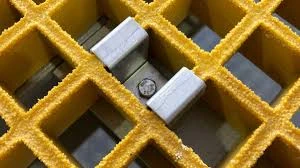
-
 Afrikaans
Afrikaans -
 Albanian
Albanian -
 Amharic
Amharic -
 Arabic
Arabic -
 Armenian
Armenian -
 Azerbaijani
Azerbaijani -
 Basque
Basque -
 Belarusian
Belarusian -
 Bengali
Bengali -
 Bosnian
Bosnian -
 Bulgarian
Bulgarian -
 Catalan
Catalan -
 Cebuano
Cebuano -
 China
China -
 China (Taiwan)
China (Taiwan) -
 Corsican
Corsican -
 Croatian
Croatian -
 Czech
Czech -
 Danish
Danish -
 Dutch
Dutch -
 English
English -
 Esperanto
Esperanto -
 Estonian
Estonian -
 Finnish
Finnish -
 French
French -
 Frisian
Frisian -
 Galician
Galician -
 Georgian
Georgian -
 German
German -
 Greek
Greek -
 Gujarati
Gujarati -
 Haitian Creole
Haitian Creole -
 hausa
hausa -
 hawaiian
hawaiian -
 Hebrew
Hebrew -
 Hindi
Hindi -
 Miao
Miao -
 Hungarian
Hungarian -
 Icelandic
Icelandic -
 igbo
igbo -
 Indonesian
Indonesian -
 irish
irish -
 Italian
Italian -
 Japanese
Japanese -
 Javanese
Javanese -
 Kannada
Kannada -
 kazakh
kazakh -
 Khmer
Khmer -
 Rwandese
Rwandese -
 Korean
Korean -
 Kurdish
Kurdish -
 Kyrgyz
Kyrgyz -
 Lao
Lao -
 Latin
Latin -
 Latvian
Latvian -
 Lithuanian
Lithuanian -
 Luxembourgish
Luxembourgish -
 Macedonian
Macedonian -
 Malgashi
Malgashi -
 Malay
Malay -
 Malayalam
Malayalam -
 Maltese
Maltese -
 Maori
Maori -
 Marathi
Marathi -
 Mongolian
Mongolian -
 Myanmar
Myanmar -
 Nepali
Nepali -
 Norwegian
Norwegian -
 Norwegian
Norwegian -
 Occitan
Occitan -
 Pashto
Pashto -
 Persian
Persian -
 Polish
Polish -
 Portuguese
Portuguese -
 Punjabi
Punjabi -
 Romanian
Romanian -
 Russian
Russian -
 Samoan
Samoan -
 Scottish Gaelic
Scottish Gaelic -
 Serbian
Serbian -
 Sesotho
Sesotho -
 Shona
Shona -
 Sindhi
Sindhi -
 Sinhala
Sinhala -
 Slovak
Slovak -
 Slovenian
Slovenian -
 Somali
Somali -
 Spanish
Spanish -
 Sundanese
Sundanese -
 Swahili
Swahili -
 Swedish
Swedish -
 Tagalog
Tagalog -
 Tajik
Tajik -
 Tamil
Tamil -
 Tatar
Tatar -
 Telugu
Telugu -
 Thai
Thai -
 Turkish
Turkish -
 Turkmen
Turkmen -
 Ukrainian
Ukrainian -
 Urdu
Urdu -
 Uighur
Uighur -
 Uzbek
Uzbek -
 Vietnamese
Vietnamese -
 Welsh
Welsh -
 Bantu
Bantu -
 Yiddish
Yiddish -
 Yoruba
Yoruba -
 Zulu
Zulu
Lightweight Fiberglass Hoods for Enhanced Performance and Style in Automotive Applications
The Benefits and Applications of Fiberglass Hoods
Fiberglass hoods have become a popular choice in various industries, particularly in automotive customization, due to their lightweight, durable, and corrosion-resistant properties. This article will explore the advantages of fiberglass hoods, their applications, and why they are preferred over traditional metal hoods.
What is Fiberglass?
Fiberglass is a composite material made of fine glass fibers woven together and set in a resin. This combination results in a material that is not only lightweight but also incredibly strong and resistant to different environmental conditions. The manufacturing process involves layering the glass fibers in a mold and impregnating them with resin, which hardens and creates a solid structure.
Advantages of Fiberglass Hoods
1. Weight Reduction One of the most significant advantages of fiberglass hoods is their reduced weight compared to traditional steel or aluminum hoods. A lighter hood can improve a vehicle's overall performance by reducing the center of gravity and increasing fuel efficiency. In racing applications, this weight reduction can lead to faster lap times and better handling.
2. Durability Fiberglass hoods are much more resistant to dents and corrosion than metal hoods. While metal can rust and corrode over time, fiberglass maintains its integrity as long as it is properly maintained and protected. This durability makes fiberglass a great choice for vehicles exposed to harsh environmental conditions.
3. Customization Another significant benefit of fiberglass hoods is the ease of customization. The molding process allows for intricate designs and shapes to be created with relative ease. Car enthusiasts can find a wide range of fiberglass hoods tailored to specific makes and models, often featuring aggressive styling, functional scoops, and more aerodynamic contours. This level of customization enables vehicle owners to express their unique style and increase their vehicle's performance characteristics.
fiberglass hood

4. Cost-Effectiveness While the initial cost of fiberglass hoods might be slightly higher than that of traditional hoods, their longevity and reduced maintenance expenses can make them more cost-effective in the long run. Additionally, the improved fuel efficiency from weight reduction can offer savings at the gas pump over time.
5. Ease of Repair In the event of damage, fiberglass hoods can be repaired more easily than metal hoods. Small cracks or chips can typically be patched and painted without requiring the complete replacement of the hood. This ease of repair is particularly beneficial for those using their vehicles in competitive scenarios, where aggressive driving may lead to wear and tear.
Applications of Fiberglass Hoods
The most prominent use of fiberglass hoods is in the automotive sector, particularly among muscle car enthusiasts and motorsports. Custom car builders often opt for fiberglass due to its versatility and performance advantages. Additionally, fiberglass hoods are commonly seen on racing cars, where weight savings are critical for achieving optimal speed and performance.
Beyond the automotive industry, fiberglass hoods are used in other sectors, including marine applications, aircraft design, and even in the construction of custom trailers and campers. The versatility of fiberglass as a material allows it to be adapted for various innovative uses.
Conclusion
Fiberglass hoods represent a significant advancement in automotive technology and design. Their lightweight yet durable nature, customization options, and cost-effectiveness make them an appealing choice for car enthusiasts and professionals alike. As technology continues to evolve, it is likely we will see even more applications for this versatile material across different industries. Whether for performance, aesthetics, or practicality, fiberglass hoods are leading the way in shaping the future of vehicle design.
Latest news
-
Exploring the Benefits of Top Hammer Drifter Rods for Enhanced Drilling PerformanceNewsJun.10,2025
-
High-Precision Fiberglass Winding Machine for GRP/FRP Pipe Production – Reliable & Efficient SolutionsNewsJun.10,2025
-
FRP Pipes & Fittings for Shipbuilding - Corrosion-Resistant & LightweightNewsJun.09,2025
-
Premium FRP Flooring Solutions Durable & Slip-ResistantNewsJun.09,2025
-
Premium Fiberglass Rectangular Tanks Durable & Lightweight SolutionNewsJun.09,2025
-
Tapered Drill String Design Guide Durable Performance & UsesNewsJun.09,2025









